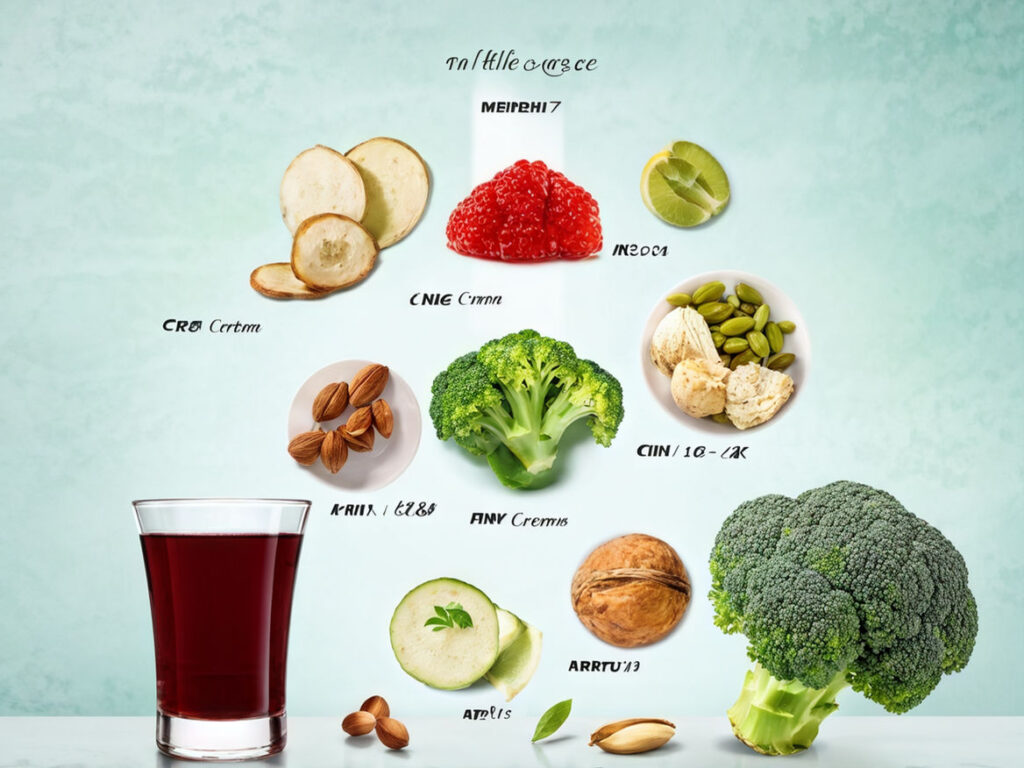Which Types of Foods Increase Lifespan?
Introduction
The quest for longevity has led scientists and nutritionists to explore the profound impact of diet on lifespan. The foods we consume play a critical role in our overall health, influencing the risk of chronic diseases, physical and cognitive function, and ultimately, lifespan. This article delves into the specific types of foods known to promote longevity, supported by scientific evidence, and examines how incorporating these foods into daily diets can contribute to a longer, healthier life.
The Science Behind Diet and Longevity
Nutrient-Dense Foods
Nutrient-dense foods are rich in vitamins, minerals, and other essential nutrients relative to their calorie content. These foods provide the necessary components for maintaining bodily functions and preventing diseases without contributing to excessive caloric intake, which is linked to obesity and related health issues.
Key Food Groups That Promote Longevity
Fruits and Vegetables
Fruits and vegetables are fundamental to a longevity-promoting diet due to their high content of vitamins, minerals, fiber, and antioxidants. They offer numerous health benefits:
- Antioxidants: Compounds such as vitamin C, vitamin E, and beta-carotene protect cells from oxidative damage, reducing the risk of chronic diseases like cancer and heart disease.
- Fiber: Aids in digestion, regulates blood sugar levels, and lowers cholesterol.
- Phytochemicals: Naturally occurring compounds that have anti-inflammatory and immune-boosting properties.
Examples:
- Berries: Blueberries, strawberries, and raspberries are rich in antioxidants and vitamins.
- Leafy Greens: Spinach, kale, and Swiss chard are high in vitamins A, C, and K, as well as minerals like iron and calcium.
- Cruciferous Vegetables: Broccoli, cauliflower, and Brussels sprouts contain glucosinolates, which have cancer-preventive properties.
Whole Grains
Whole grains are an essential part of a healthy diet and are linked to a lower risk of several chronic diseases. They provide:
- Fiber: Promotes digestive health and helps maintain healthy cholesterol levels.
- Vitamins and Minerals: Such as B vitamins, iron, magnesium, and selenium.
- Phytochemicals: Which may protect against chronic diseases.
Examples:
- Oats: Rich in soluble fiber, which helps lower cholesterol.
- Quinoa: Contains all nine essential amino acids, making it a complete protein source.
- Brown Rice: Provides magnesium, which is important for bone health and energy metabolism.
Lean Proteins
Lean proteins are crucial for maintaining muscle mass, especially as we age. They support body repair and maintenance and can help reduce the risk of sarcopenia (age-related muscle loss).
Examples:
- Fish: Particularly fatty fish like salmon, mackerel, and sardines, are high in omega-3 fatty acids, which are essential for heart health and reducing inflammation.
- Poultry: Chicken and turkey are good sources of lean protein and B vitamins.
- Legumes: Beans, lentils, and chickpeas provide plant-based protein, fiber, and various vitamins and minerals.
Healthy Fats
Healthy fats, particularly unsaturated fats, are essential for heart health, brain function, and reducing inflammation.
Examples:
- Nuts and Seeds: Almonds, walnuts, flaxseeds, and chia seeds are rich in omega-3 and omega-6 fatty acids, fiber, and protein.
- Olive Oil: A staple of the Mediterranean diet, it contains monounsaturated fats that support heart health.
- Avocados: High in monounsaturated fats, potassium, and fiber, avocados help reduce cholesterol levels and support cardiovascular health.
Specific Dietary Patterns and Longevity
The Mediterranean Diet
The Mediterranean diet is one of the most well-researched dietary patterns associated with longevity. It emphasizes:
- High Consumption of Fruits and Vegetables: Providing essential nutrients and antioxidants.
- Whole Grains: Offering fiber and essential vitamins.
- Healthy Fats: Primarily from olive oil and nuts.
- Lean Proteins: Including fish and legumes.
Studies have shown that adherence to the Mediterranean diet reduces the risk of heart disease, stroke, and cancer, and is associated with increased life expectancy.
The Blue Zones Diet
Blue Zones are regions where people live significantly longer lives. Common dietary patterns in these areas include:
- Plant-Based Foods: High consumption of vegetables, fruits, whole grains, and legumes.
- Moderate Fish Consumption: Providing essential omega-3 fatty acids.
- Minimal Processed Foods: Focusing on whole, unprocessed foods.
The diets in these regions emphasize whole, unprocessed foods, which contribute to overall health and longevity.
The Role of Supplements
While a balanced diet should ideally provide all necessary nutrients, certain supplements may support longevity:
- Omega-3 Fatty Acids: Found in fish oil, they support heart health and reduce inflammation.
- Vitamin D: Essential for bone health and immune function, particularly in regions with limited sunlight.
- Antioxidants: Vitamins C and E help combat oxidative stress and protect against cellular damage.
Societal and Environmental Factors
Access to Healthy Food
Access to nutritious food is a critical factor in promoting longevity. Socioeconomic disparities can impact diet quality, with lower-income populations often facing challenges in accessing healthy, affordable food options.
Community and Social Connections
Strong social ties and a sense of community are linked to longer life. Social interactions provide emotional support, reduce stress, and encourage healthy behaviors, all of which contribute to longevity.
Challenges and Considerations
Individual Variability
Individual responses to diet and lifestyle changes can vary widely. Factors such as genetics, pre-existing health conditions, and personal preferences play a role in determining the effectiveness of specific interventions.
Sustainability and Practicality
Adopting and maintaining healthy lifestyle changes can be challenging. It is important to develop sustainable habits that fit into one’s lifestyle and preferences to ensure long-term adherence.
Conclusion
Incorporating a variety of nutrient-dense foods into daily diets can significantly increase lifespan by reducing the risk of chronic diseases, enhancing physical and mental well-being, and promoting overall health. Foods such as fruits, vegetables, whole grains, lean proteins, and healthy fats provide essential nutrients that support longevity. Dietary patterns like the Mediterranean and Blue Zones diets offer practical frameworks for achieving a balanced, longevity-promoting diet. By making informed food choices and considering individual needs and preferences, individuals can take proactive steps towards a longer, healthier life.
Related Searches
- Best foods for longevity
- Mediterranean diet and lifespan
- Blue Zones diet
- Anti-aging foods
- Nutrient-dense foods for health
People Also Ask
Q: What foods should be avoided to increase lifespan?
A: To increase lifespan, it is advisable to avoid processed foods high in sugar, unhealthy fats, and refined grains. These foods can contribute to obesity, cardiovascular diseases, and other health issues.
Q: How does red meat affect longevity?
A: Excessive consumption of red and processed meats has been linked to an increased risk of heart disease, cancer, and shorter lifespan. It is recommended to limit red meat intake and choose leaner protein sources.
Q: Are there specific superfoods that can increase lifespan?
A: While no single food can guarantee increased lifespan, certain superfoods like berries, nuts, and leafy greens are exceptionally nutrient-dense and can contribute to overall health and longevity.
Q: How important is hydration for longevity?
A: Proper hydration is crucial for overall health. Water supports various bodily functions, including digestion, circulation, and temperature regulation. Staying hydrated can help prevent chronic diseases and promote longevity.
Q: Can a vegetarian or vegan diet increase lifespan?
A: Vegetarian and vegan diets, when well-planned, can provide all necessary nutrients and are associated with lower risks of heart disease, hypertension, type 2 diabetes, and certain cancers. These diets can contribute to increased lifespan if they include a variety of nutrient-dense foods.






